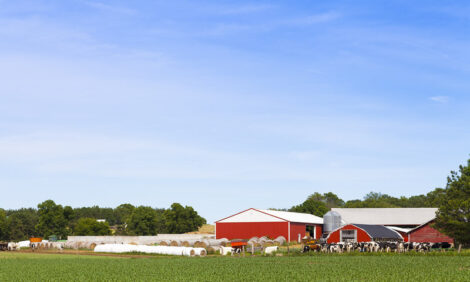



Is Parlour Training Heifers Worthwhile?
ANALYSIS – Efforts made to initiate heifers to parlour routine may be wasted, according to a research review by a US livestock expert.Stress limits performance and the transition into the milking herd represents a huge challenge to cows as physiology, diet, housing, management and levels of human contact change, a Tennessee State University dairy expert has told farmers.
Dr Peter Krawczel has outlined a piece of New Zealand research, listing milking disruption and increased mastitis risk as threats from nervous cluster-kicking cows.
He said that human contact is a major factor and pointed to research showing that animals more comfortable around humans give higher yields and components.
However, he concluded that the benefits are hugely dependent on specific animals, advising that ‘training up’ heifers appears fruitless.
The study in question took the 20 most and least wary heifers from a herd - based on a human avoidance test - and monitored performance after a three stage training programme.
Cows were stratified according to response to humans approaching animal flight zones and introduced to various challenges heifers face entering the milk herd.
Entry from holding pen, introduction to noises and touching within the milking parlour were the first two stages, followed by a more robust exploration of a typical milking environment.
Human avoidance, Dr Krawczel added, is considered to be one of the key methods in testing for fear of humans.
Summarising the AgResearch study, he said: “Overall, training did have some advantages, but these benefits were often dependent on the temperament of the heifer.
“For example, the low-response trained heifers allowed an approaching human to come the closest at the end of the training sessions, but the high-response, trained heifers were the group that voluntarily came the closest to a seated human.”
Conversely, a corpus of research exists making a case for positive handling of heifers to reduce their stress response.
Other benefits can be linked to welfare as confident cows walk steadier and cause less hoof aggravation.
Concluding his reivew of the New Zealand study, Dr Krawczel concluded: “Regardless of these minor behavioural changes, due to the limited benefit for milking performance the data does not support investing time in training heifers.”
Michael Priestley
News Team - Editor
Mainly production and market stories on ruminants sector. Works closely with sustainability consultants at FAI Farms



